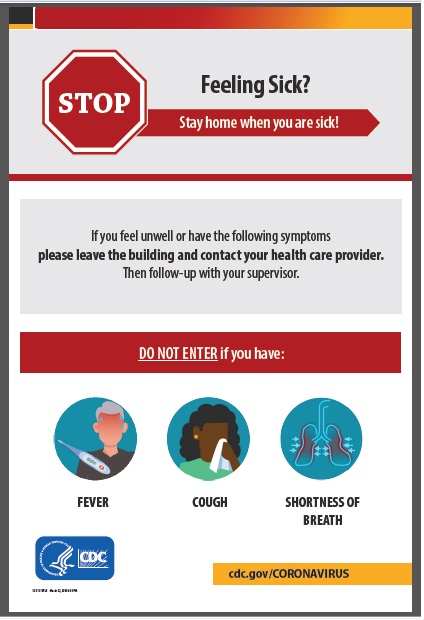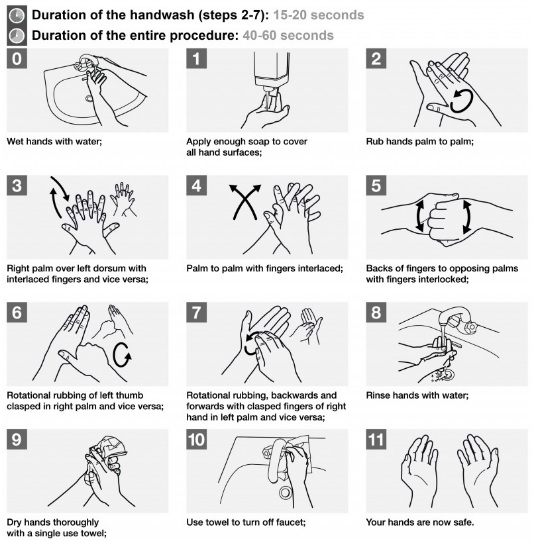(19 May 2021)

Evangelical Lutheran Church in America
|
Page Contents
|
|
Roadshow
Since important notices related to COVID-19 might be sent by Roadshow, you may want to sign up. More information about the Roadshow can be found at the Members Portal. Facebook
We also use Facebook to share information. If you have a Facebook account, you can check us out on the WV-WMD Synod Facebook page. |
Reevaluating
So much has changed in just the last few weeks in terms
of CDC guidance and government announcements that we
haven't caught up with it all. We are reevaluting the
reopening guidance. In the meantime, visit our
Government page for details on that front.
Hunkering Down for the Long Haul
Hope that life would return to normal sooner rather than
later now appear overly optimistic. We've seen new
outbreaks, undoing gains made in controlling spread of
Coronavirus. Several congregations have returned to
in-person worship since the easing of restrictions on
public gatherings in some of our jurisdictions while
others are taking a wait and see approach. Continued
employment of best practices for worship and gathering
during COVID-19 is important if we want to mitigate risk
to our attendees, clergy, and staff.
Reclosing: Have a Plan
As much as we talked about reopening---we have a webpage dedicated to it---we
also must be prepared to reclose our buildings. Monitoring
of the situation in each of our communities should
continue and help inform congregational leadership on the
question of staying open or closing again. We may find
that we will oscillate between open and closed states for
the next several months to year until a vaccine is found,
better treatments are employed, or heard immunity
develops. As much as a congregations had plans to reopen,
they should have plans to reclose.
Rapidly Changing Landscape
Information on this page is updated often. Checking back
periodically is not a bad idea. If your browser caches
pages---most do---you may want to hit the refresh button.
As the two states and one commonwealth in which the
congregations of the WV-WMD Synod find themselves lift
various restrictions related to COVID-19 and then
reimposing them, our congregations face decisions related
to reopening and reclosing for worship and other
activities. The pace with which these orders and
recommendations change, however, is so rapid, that it is
hard to keep up and make long range plans. Additionally,
public health advice evolves as research on the pandemic
continues. What is the case today may not be the case
tomorrow. What may be the best advice that can be given
today, based upon what we know and suspect, may not be the
best advice tomorrow.
With this in mind, this page is maintained (to the best
of our abilities) to provide information from official
outlets (governmental and ecclesiastical). There may be a
lag in time in our receiving that information and in
getting posted. Your assistance is welcome in notifying us
of things we have not yet captured.
Church-related Outbreaks
There have been reported outbreaks connected to churches
in WV (none in our congregations). Gov. Justice of West
Virginia made mention of this in his 10 June 2020 press
conference, urging churches to follow the guidelines. To
hear his remarks, click here.
Reopening & Polity, Law, and Ethics
Synod does not have the authority to open or close your church building or congregation (except under the narrow limitations and very, very rarely applied provisions of †S13.24 and/or S13.25). Synod can advise and counsel. Synod can even urge, but it can not order. Consequently, this is a congregational decision. For a discussion of congregational polity with respect to opening and closing, click here.
Does the civil government have the authority to open or close your church? Well, much depends there upon some complicated tests. There is no simple answer that covers all situations. One cannot simply say, "We have a First Amendment right, and we will do as we please," nor can one say, "We must be obedient to the civil authorities in all matters." On the latter point, Luther's explanation to the Fourth Commandment points us in the direction of obedience, but this obedience has limits as both Luther and Melanchthon teach in other places. For a lengthy conversation, feel free to call Bp. Riegel: he rather enjoys this sort of thing and will be happy to supply a reading list. The former, however, is not one of the limits that Luther and Melanchthon ever invoked (for obvious historical reasons). As a matter of American jurisprudence, matters have been in flux in recent decades. There is no absolute protection under the First Amendment that covers all circumstances. For example, the First Amendment will not exempt a church from the Fire Marshal's maximum occupancy standard, assuming the Fire Marshal applies the same standards to non-church entities.It may be the case, that your congregation, depending upon its civil jurisdiction, is exempt from this or that regulation. If the regulation is a good idea, even if not required to follow it, why wouldn't a congregation do so? Of course, there may be good ideas that compete with each other. Again, it's not simple. This is where ethics comes in, and ethics requires that we take a step back from our appetites and our fears, considering the matter coolly and rationally, looking at the competing moral demands and differing hierarchies of values, and choosing a course of action with full recognition of the costs and benefits not only for ourselves but also for our neighbors. Not everyone will come to the same conclusion, but, regardless of the conclusions reached, let them be thoughtful and informed.
Synod Recommendations
 Checklist (Updated
5/18/20)
Checklist (Updated
5/18/20)
Synod has produced a checklist to serve as a tool for
congregations in their thinking through decisions related
to reopening. The checklist is not a list of things your
congregation must do in order to reopen. It is a list of
things your congregation should think about. Your
congregation makes its own decisions, but we can often
overlook a decision to be made, especially if theses are
not the sorts of decisions we make on a regular basis. The
checklist is offered in two editions. Both editions can be
downloaded in either PDF or MS-Word. Your leadership team
my find the MS-Word version particularly helpful in that
your local commentary and decisions can be inserted into
the doc either inline or as footnotes. By manually adding
spaces between checklist items, you can even convert into
a worksheet for Council or committee members to use in
their preparation and deliberation.
These checklists have been update and uploaded the
evening of 18 May 2020. Check the date on the checklist
and make sure it says, 18 May 2020," for the most recent
version. Questions have been added about worship related
hospitality, water fountains, and kitchens.
- Checklist with Explanations and Questions [PDF][MS-Word]--- this is the fuller form in which most items on the checklist are accompanied with explanation, advice, and/or questions for consideration.
- Checklist (only) [PDF][MS-Word] --- this is just the checklist. Much shorter, but without the supporting material.
White Paper
DEM Sherri Schafer prepared a white paper on reopening
that was presented to pastors at the 30 April 2020 Zoom
meeting. That
white paper can be downloaded here.
ELCA Guidance
The ELCA Churchwide Offices have produced a guidance for
returning to in-person worship. You may
download it by clicking here. Keep in mind, when
reading this guidance, that it was designed with with the
broader church in mind. Some of the recommendations are
more suited to large congregations (e.g., the
recommendation about removing hymnals etc. assumes more
than one service per week is taking place). There are also
liturgical recommendations which seem to be informed by
aesthetic concerns that, if implemented, would seems
forced (e.g., the strange alternatives to shaking hands at
the Peace). There is much that is useful in the document,
and there are a few things which would seem out of place
among most of our WV-WMD congregations.
Government Declarations
Government declarations, orders, and statements are on their own page. Click here to visit the COVID-19 Government Declarations page to find our what recommendations and orders our elected officials are promulgating that might affect church life (among many other things). Of particular interest will be those statements in each jurisdiction directly related to reopening.
Medical Sector
CDC
Guidelines
The CDC and other public health agencies have posted numerous guidelines for churches and community organizations. This excellent collection can be reached through the CDC's website. Visit our COVID-19 Government page for links to the CDC (and state/commonwealth) resources, information, and guidelines. You'll find there:
 Interim
Guidance for Administrators and Leaders of Community-
and Faith-Based Organizations to Plan, Prepare, and
Respond to Coronavirus Disease 2019 (COVID-19)
Interim
Guidance for Administrators and Leaders of Community-
and Faith-Based Organizations to Plan, Prepare, and
Respond to Coronavirus Disease 2019 (COVID-19)- Checklist for Community and Faith Leaders
- Reopening Guidance for Cleaning and Disinfecting Public Spaces, Workplaces, Businesses, Schools, and Homes
- FAQs for Administrators and Leaders at Community- and Faith-Based Organizations
We encourage the use of these resources. The site even
has downloadable posters related to hand washing, wearing
masks, knowing the warning signs, and more.
MMWR (5/19/20): Case Study of Church Outbreak
CDC released a Morbidity and Mortality Weekly Report report
late 19 May 2020 entitled, "High
COVID-19
Attack Rate Among Attendees at Events at a Church —
Arkansas, March 2020." It is a sobering analysis of a
COVID-19 outbreak in an Arkansas congregation, the time of
transmission being prior to the issuance of the Federal
lockdown recommendation.CIDRAP
On SARS-CoV-2
The Center for Infectious Disease Research and Policy of the University of Minnesota prepared an insightful "viewpoint" with respect to COVID-19. The paper examines past pandemics, comparing them to each other and the current COVID-19 pandemic. Various scenarios are subsequently explored. The document was published April 30. Download here.On Crisis Communication
The Center for Infectious Disease Research and Policy of
the University of Minnesota has issued a second
"viewpoint" covering crisis communication in the midst of
the COVID-19 pandemic. Pastors and congregational leaders
may find this helpful not only at this time but also for
future events and situations. The document was published
May 6. Download
here.
From WV-WMD Health Providers
We're starting a new section here. Only own, Synod
recommended that congregational leadership turn to the
health professionals in their own congregations to assist
in responding to the challenges posed by COVID-19. The
Synod should have taken its own advice---well, we did, but
we weren't transparent as to the significant role it
played (and continues to play) in informing synodical
advice and action. Let's fix that.
 Hand Washing
Hand Washing
Jennifer Loughty, who works with the providing of
educational and training material for Certified Nursing
Assistants, writes,"One of the skills that CNAs must
demonstrate properly before being certified is hand
washing. We thought it would be a good idea to put
together a hand washing guide page on our website using
material from our CNA training resources to help better
educate the public on the proper steps for hand washing to
help prevent the spread of infectious diseases." Check it
out: https://cnaclassesnearme.com/how-to-properly-wash-your-hands/
304-363-4030 + Porter@WV-WMD.org

